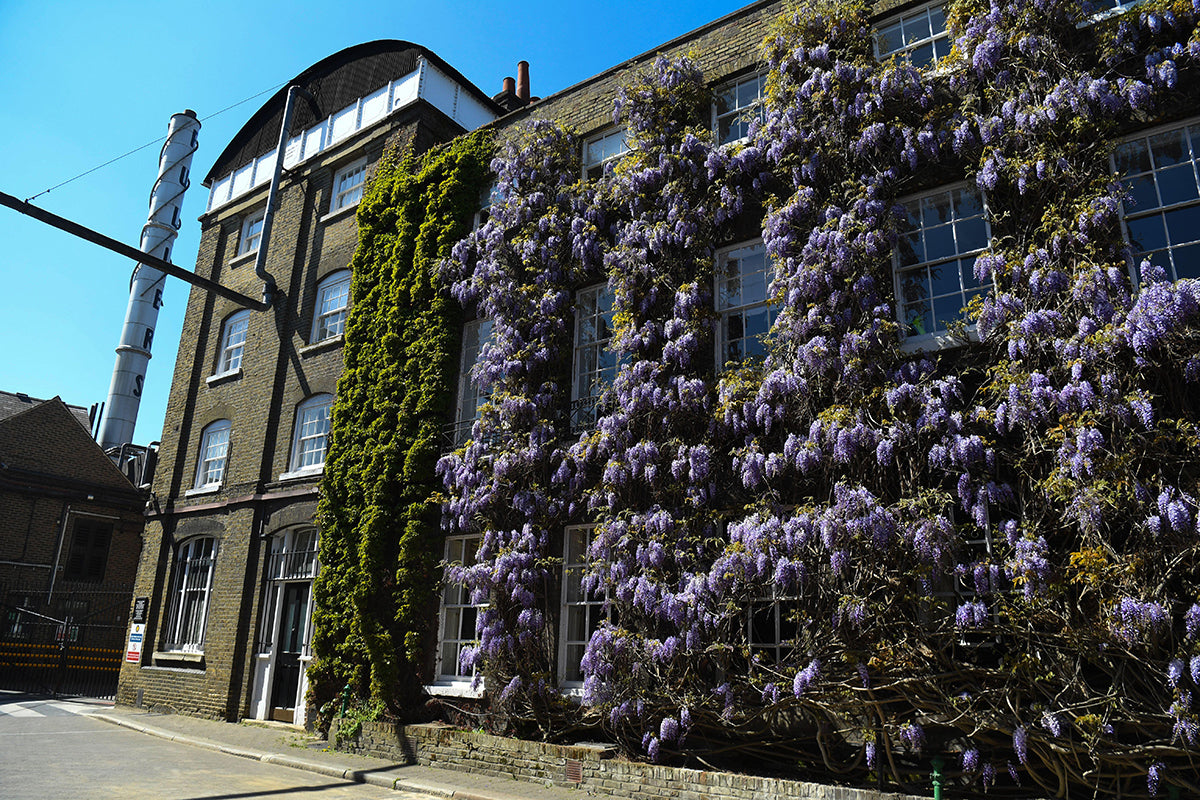Exceptional trees - Britain's oldest wisteria

Not a tree but we couldn’t resist squeezing in a twining climber of truly arboreal proportions. Britains oldest wisteria located in the borough of Chiswick, West London, grows against a brewery wall. Fuller's Griffin Brewery proudly claims to have Britain's oldest wisteria, a living horticultural relic said to have been planted in 1816. With its cascading purple flowers, it’s purportedly one of a pair of saplings brought from China over two centuries ago. One found its home outside the Head Brewer's cottage, while its twin was destined for the renowned Kew Gardens. Fate, however, had other plans. The Kew sapling failed to thrive, leading the gardens' horticulturists back to the brewery for a cutting, thus confirming the brewery's wisteria as the oldest in the country.
All is not clear-cut however, and intriguingly, there are contenders for the title of the oldest British wisteria. In 1816, the same year referenced in the brewery's account, Joseph Banks, President of the newly founded Royal Horticultural Society, had set his sights on enriching Britain's gardens with exotic specimens from the East. To this end, he commissioned John Reeves, an East India Company Inspector of Tea with a passion for natural history, to acquire and ship plants back to London. Reeves, during his tenure in Canton from 1812 to 1831, became more than just a tea inspector. He emerged as an enthusiastic collector of the regional flora and fauna, commissioning illustrations, and sending living plant specimens back home. In late 1815, Reeves carefully packed two wisteria plants, sending them on separate voyages to England. One sailed aboard the HCS Cuffnells with Captain Welbank while the other, accompanied by Reeves himself, followed a few weeks later on the HCS Warren Hastings under Captain Rawes. The plants arrived in England in May 1816, with Captain Welbank's ship docking on the 4th and Reeves' arrival following a week later on the 11th. The Wwsteria specimens were then entrusted to two passionate garden enthusiasts: Charles Hampden Turner at Wood Lodge in Eltham and Thomas Carey Palmer at Vale Cottage in Bromley.
Turner's wisteria, despite some initial mistreatment as gardeners grappled with its care, proved resilient. By 1819, it had recovered sufficiently to be immortalized in a painting by John Curtis for Curtis's Botanical Magazine. Meanwhile, Palmer's plant thrived well enough for him to share a propagated cutting with James Lee, a Hammersmith nursery man.
Wherever the claim for the oldest wisteria lies, one thing is certain - the wisteria's journey from China to Britain has left a permanent mark on the country's horticultural landscape when every May, buildings and gardens through the country are draped in the cascading blue, white, or purple racemes of these wonderfully energetic plants.







